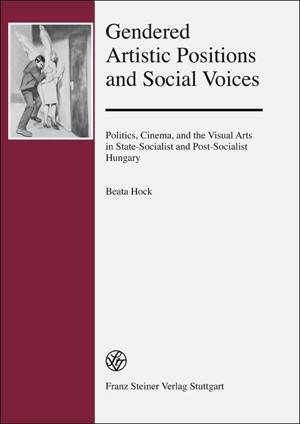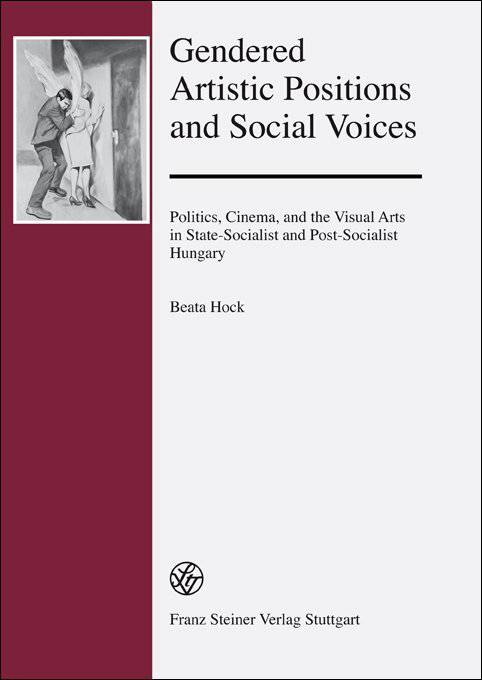
Bedankt voor het vertrouwen het afgelopen jaar! Om jou te bedanken bieden we GRATIS verzending (in België) aan op alles gedurende de hele maand januari.
- Afhalen na 1 uur in een winkel met voorraad
- In januari gratis thuislevering in België
- Ruim aanbod met 7 miljoen producten
Bedankt voor het vertrouwen het afgelopen jaar! Om jou te bedanken bieden we GRATIS verzending (in België) aan op alles gedurende de hele maand januari.
- Afhalen na 1 uur in een winkel met voorraad
- In januari gratis thuislevering in België
- Ruim aanbod met 7 miljoen producten
Zoeken
Gendered Artistic Positions and Social Voices
Politics, Cinema, and the Visual Arts in State-Socialist and Post-Socialist Hungary
Beata Hock
€ 122,45
+ 244 punten
Omschrijving
The history of women's art and gendered cultural practices has had a troubled record in Hungary as in many countries of East-Central Europe, and it mostly features as a missing phenomenon. This "lack" is often attributed on the one hand to state-socialist government policies that "emancipated" women at the same time as they hindered grass-roots social movements, including feminism, and on the other hand, to a re-traditionalizing social environment after the political changes of 1989. Beata Hock critically re-examines the supposed absences and presences of feminist cultural practice in Hungary with a focus on fine arts and cinema. The gendered dimensions of art production are explored in relation to larger social and cultural contexts in order to offer a uniquely interdisciplinary account.
Specificaties
Betrokkenen
- Auteur(s):
- Uitgeverij:
Inhoud
- Aantal bladzijden:
- 284
- Taal:
- Engels
- Reeks:
- Reeksnummer:
- nr. 42
Eigenschappen
- Productcode (EAN):
- 9783515102094
- Verschijningsdatum:
- 28/01/2013
- Uitvoering:
- Hardcover
- Formaat:
- Genaaid
- Afmetingen:
- 175 mm x 244 mm
- Gewicht:
- 816 g

Alleen bij Standaard Boekhandel
+ 244 punten op je klantenkaart van Standaard Boekhandel
Beoordelingen
We publiceren alleen reviews die voldoen aan de voorwaarden voor reviews. Bekijk onze voorwaarden voor reviews.









